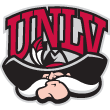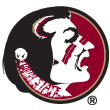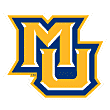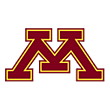There are, within college basketball, some jobs that wouldn't be considered the most desirable posts. And yes, all college basketball jobs are challenging.
But certain jobs seem to possess more obstacles than the rest. It's always an achievement to earn the opportunity to coach one of the country's 351 Division I programs. But the problems seem to outweigh the positives at these jobs. These are the ones we'd consider "bad jobs."
UNLV
 Every night, if you're on staff at UNLV, you have to wonder what happens after your head hits the pillow. Young players around the country are subject to temptation that can lead to actions that cripple their careers and respective programs. But only one high-major program resides in a place where the blackjack tables operate 24/7. Sure, the flip side is that the city offers an appealing collection of diversions that have enticed top prospects for decades. Yet there are also plenty of reasons for parents to keep their children away from UNLV, too. And Dave Rice makes $700,000 -- modest compared to his peers throughout the country -- for his trouble.
Every night, if you're on staff at UNLV, you have to wonder what happens after your head hits the pillow. Young players around the country are subject to temptation that can lead to actions that cripple their careers and respective programs. But only one high-major program resides in a place where the blackjack tables operate 24/7. Sure, the flip side is that the city offers an appealing collection of diversions that have enticed top prospects for decades. Yet there are also plenty of reasons for parents to keep their children away from UNLV, too. And Dave Rice makes $700,000 -- modest compared to his peers throughout the country -- for his trouble.
Clemson
 Clemson is a football school. Basketball is not the priority. Never will be. Littlejohn Coliseum is a 10,000-seat arena, but the school's average attendance was 7,743, 61st nationally in 2012-13. Plus, Frank Martin's move to South Carolina has made recruiting within the region more competitive. The university just signed Brad Brownell to a six-year extension after the Tigers reached the NIT semifinals in March. He's 74-58 overall in four seasons at Clemson. The team hasn't earned an invite to the Big Dance since 2011, yet the program will reportedly owe Brownell between $3 million and $5 million if it fires him before his contract expires. That doesn't sound like a school that's committed to basketball as much as a university that just doesn't want to deal with any major changes in basketball anytime soon.
Clemson is a football school. Basketball is not the priority. Never will be. Littlejohn Coliseum is a 10,000-seat arena, but the school's average attendance was 7,743, 61st nationally in 2012-13. Plus, Frank Martin's move to South Carolina has made recruiting within the region more competitive. The university just signed Brad Brownell to a six-year extension after the Tigers reached the NIT semifinals in March. He's 74-58 overall in four seasons at Clemson. The team hasn't earned an invite to the Big Dance since 2011, yet the program will reportedly owe Brownell between $3 million and $5 million if it fires him before his contract expires. That doesn't sound like a school that's committed to basketball as much as a university that just doesn't want to deal with any major changes in basketball anytime soon.
Florida State
 What makes Florida State a great job? The Seminoles possess a nice practice facility but their home venue, the Donald L. Tucker Center, is a public facility with a lukewarm atmosphere for home games. But that's not the program's most significant issue. Leonard Hamilton has to battle a collection of coaches around the state who have found more success on the statewide and national recruiting landscape in recent years. Billy Donovan has multiple national titles. Former Kentucky assistant Orlando Antigua just moved to South Florida. And Florida Gulf Coast -- also, "Dunk City" -- still has a chance to grow, especially as more prospects take a trip to Ft. Myers and catch a glimpse of that resort-like campus. Plus, the shadow cast by a Florida State football team that just won the national championship is large.
What makes Florida State a great job? The Seminoles possess a nice practice facility but their home venue, the Donald L. Tucker Center, is a public facility with a lukewarm atmosphere for home games. But that's not the program's most significant issue. Leonard Hamilton has to battle a collection of coaches around the state who have found more success on the statewide and national recruiting landscape in recent years. Billy Donovan has multiple national titles. Former Kentucky assistant Orlando Antigua just moved to South Florida. And Florida Gulf Coast -- also, "Dunk City" -- still has a chance to grow, especially as more prospects take a trip to Ft. Myers and catch a glimpse of that resort-like campus. Plus, the shadow cast by a Florida State football team that just won the national championship is large.
Marquette
 I grew up in Milwaukee. Everyone in the area recognizes Marquette as a school with high academic standards and an occasionally impressive basketball program. But the top local athletes would choose Wisconsin over Marquette in most situations. The Chicago kids that a successful Marquette coach has to pursue have a multitude of options, too. The city has a lot to offer but the area that surrounds the campus doesn't showcase the highs. And the Golden Eagles are residents of a Big East that lacks the lucrative TV deal that the old Big East commanded. That's a problem for a Marquette team that spends significantly more per participant than any other Big East school. The Golden Eagles could use more cash. The private university is wrestling with financial problems. And it's in the middle of a messy transitional period within its administrative ranks. The new regime could create academic barriers that might affect Steve Wojciechowski's recruiting plans. So it's easy to see why Marquette isn't the most appealing job in college basketball.
I grew up in Milwaukee. Everyone in the area recognizes Marquette as a school with high academic standards and an occasionally impressive basketball program. But the top local athletes would choose Wisconsin over Marquette in most situations. The Chicago kids that a successful Marquette coach has to pursue have a multitude of options, too. The city has a lot to offer but the area that surrounds the campus doesn't showcase the highs. And the Golden Eagles are residents of a Big East that lacks the lucrative TV deal that the old Big East commanded. That's a problem for a Marquette team that spends significantly more per participant than any other Big East school. The Golden Eagles could use more cash. The private university is wrestling with financial problems. And it's in the middle of a messy transitional period within its administrative ranks. The new regime could create academic barriers that might affect Steve Wojciechowski's recruiting plans. So it's easy to see why Marquette isn't the most appealing job in college basketball.
Northwestern
 You can't compete in the Big Ten with a home venue that resembles a large high school gymnasium. Welsh-Ryan Arena is a cute little facility. But it's an anomaly when compared to the other venues in the Big Ten. Northwestern also has high academic standards that have created recruiting challenges -- a major hurdle for a program in the recruit-rich Chicago area -- for its coaches. But Chris Collins has a 2014 recruiting class that includes top-100 recruit Victor Law. Still, Collins must convince his institution and its students to care enough about basketball to support the program with its attendance, dollars and infrastructure. Those components are vital. And they're more difficult to produce for a team that has never reached the NCAA tournament.
You can't compete in the Big Ten with a home venue that resembles a large high school gymnasium. Welsh-Ryan Arena is a cute little facility. But it's an anomaly when compared to the other venues in the Big Ten. Northwestern also has high academic standards that have created recruiting challenges -- a major hurdle for a program in the recruit-rich Chicago area -- for its coaches. But Chris Collins has a 2014 recruiting class that includes top-100 recruit Victor Law. Still, Collins must convince his institution and its students to care enough about basketball to support the program with its attendance, dollars and infrastructure. Those components are vital. And they're more difficult to produce for a team that has never reached the NCAA tournament.
Rutgers
 Julie Hermann. It's that simple. If you're a coach at Rutgers, you have to deal with her. And she's a daily public relations nightmare for her university and the athletic programs it supports. Rutgers basketball's historic mediocrity can't be blamed on Hermann, though. Eddie Jordan and his predecessors have struggled with recruiting in a fruitful region. Without a real basketball legacy, Rutgers can't convince the blue-chippers to come to New Jersey. Oh, and then there's the aftermath of the Mike Rice situation. Rice is gone. But it's difficult to remove the stench from scandal, especially for a struggling program. Rutgers, even with the Big Ten checks that will arrive soon, continues to fight against the grain.
Julie Hermann. It's that simple. If you're a coach at Rutgers, you have to deal with her. And she's a daily public relations nightmare for her university and the athletic programs it supports. Rutgers basketball's historic mediocrity can't be blamed on Hermann, though. Eddie Jordan and his predecessors have struggled with recruiting in a fruitful region. Without a real basketball legacy, Rutgers can't convince the blue-chippers to come to New Jersey. Oh, and then there's the aftermath of the Mike Rice situation. Rice is gone. But it's difficult to remove the stench from scandal, especially for a struggling program. Rutgers, even with the Big Ten checks that will arrive soon, continues to fight against the grain.
Boston College
 After an 8-24 finish, Steve Donahue was fired by BC. It wasn't unexpected. The Eagles had a strong run in the 2000s (seven NCAA tourney appearances from 2001-09). They also boast a list of former college standouts such as Reggie Jackson, Craig Smith, Troy Bell and Jared Dudley. But Boston is one of the most successful sports climates in America. The Bruins, Celtics, Red Sox and New England Patriots have all earned titles in the past six years. Championships are the norm for the city. An average Boston College basketball program that hasn't contended for the ACC title in years gets lost each season. Doesn't help that Boston College's hockey team has won three national titles in the past six years. Boston College basketball isn't even a top-two on its own campus.
After an 8-24 finish, Steve Donahue was fired by BC. It wasn't unexpected. The Eagles had a strong run in the 2000s (seven NCAA tourney appearances from 2001-09). They also boast a list of former college standouts such as Reggie Jackson, Craig Smith, Troy Bell and Jared Dudley. But Boston is one of the most successful sports climates in America. The Bruins, Celtics, Red Sox and New England Patriots have all earned titles in the past six years. Championships are the norm for the city. An average Boston College basketball program that hasn't contended for the ACC title in years gets lost each season. Doesn't help that Boston College's hockey team has won three national titles in the past six years. Boston College basketball isn't even a top-two on its own campus.
Minnesota
 Three of the top 30 recruits in the 2014 class per RecruitingNation (Reid Travis, Rashad Vaughn and Tyus Jones) were all from Minnesota. But the Gophers weren't serious players for their services. And that's not Richard Pitino's fault. That's tied to the perception of a program with a legacy littered by scandals, including the academic mess that stripped its 1997 Final Four run from the NCAA record books. The elite kids in Minnesota don't dream of playing for the Gophers the way that Michigan kids want to play for Tom Izzo and John Beilein, or how North Carolina prospects dream of joining the Blue Devils and Tar Heels. A stubborn fan base will pout if the school decides to overhaul the ancient Williams Arena (constructed in 1928), and the program still lacks the funds to put a shovel in the ground for a practice facility that former administrators promised former coach Tubby Smith in 2007. Pitino is in the same frustrating position as his predecessors.
Three of the top 30 recruits in the 2014 class per RecruitingNation (Reid Travis, Rashad Vaughn and Tyus Jones) were all from Minnesota. But the Gophers weren't serious players for their services. And that's not Richard Pitino's fault. That's tied to the perception of a program with a legacy littered by scandals, including the academic mess that stripped its 1997 Final Four run from the NCAA record books. The elite kids in Minnesota don't dream of playing for the Gophers the way that Michigan kids want to play for Tom Izzo and John Beilein, or how North Carolina prospects dream of joining the Blue Devils and Tar Heels. A stubborn fan base will pout if the school decides to overhaul the ancient Williams Arena (constructed in 1928), and the program still lacks the funds to put a shovel in the ground for a practice facility that former administrators promised former coach Tubby Smith in 2007. Pitino is in the same frustrating position as his predecessors.
Honorable "Bad Jobs" Mentions
DePaul
 Blessed to be near talented kids in Chicago but lacks the pedigree or facilities (plans for a new arena have been slowed by lawsuit, protests) to attract them.
Blessed to be near talented kids in Chicago but lacks the pedigree or facilities (plans for a new arena have been slowed by lawsuit, protests) to attract them.
Mississippi Valley State
 A few years ago, the Delta Devils were forced to practice in a middle school's gymnasium due to a leak in the roof at their facility. Constant funding issues force the program, recently affected by APR issues, to hit the road for the first two months of the season to make money for an unstable athletic department.
A few years ago, the Delta Devils were forced to practice in a middle school's gymnasium due to a leak in the roof at their facility. Constant funding issues force the program, recently affected by APR issues, to hit the road for the first two months of the season to make money for an unstable athletic department.
Texas Tech
 Because Lubbock is in the middle of nowhere. It's five hours from Dallas and eight hours from Houston. Its geographic disadvantages affect recruiting for a team that hasn't reached the NCAA tourney since 2007.
Because Lubbock is in the middle of nowhere. It's five hours from Dallas and eight hours from Houston. Its geographic disadvantages affect recruiting for a team that hasn't reached the NCAA tourney since 2007.
Oregon State
 Anything you can do, Nike U and Phil Knight can do better. Oregon is just 50 minutes from campus. It's a sedan versus luxury car every year for the coach who leads Oregon State, a team that hasn't been invited to the Big Dance since 1990.
Anything you can do, Nike U and Phil Knight can do better. Oregon is just 50 minutes from campus. It's a sedan versus luxury car every year for the coach who leads Oregon State, a team that hasn't been invited to the Big Dance since 1990.
